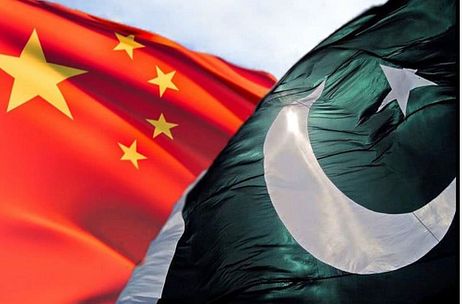Pakistan and China have a strong and strategic relationship which has been growing over the years. China’s Belt and Road Initiative (BRI) is a multi-trillion dollar initiative aiming to develop infrastructure and strengthen economic cooperation among countries in Asia, Africa, Europe, and the Middle East. The China-Pakistan Economic Corridor (CPEC) is a flagship project of the BRI, and is expected to transform Pakistan’s economy by developing infrastructure, enhancing connectivity and promoting trade. In this report, we will discuss how Pakistan can get real economic benefits from China in the coming five years.
- Enhancing Trade Cooperation:
Pakistan can boost its economic growth by enhancing trade cooperation with China. The two countries should explore new avenues for bilateral trade, increase the volume of exports, and focus on reducing the trade imbalance. Pakistan has a comparative advantage in agriculture, textile, and leather goods, while China has a strong manufacturing base. Therefore, the two countries can cooperate in these sectors, and Pakistan can export its goods to China.
- Promoting Investment:
Pakistan should attract more investment from China to enhance its economic growth. China is already investing in various sectors in Pakistan, including energy, infrastructure, and telecommunications. However, Pakistan should create a more business-friendly environment by introducing investor-friendly policies, reducing red tape, and providing incentives to foreign investors. Moreover, Pakistan should focus on diversifying its economy and encourage investment in sectors such as tourism, IT, and pharmaceuticals.
- Developing Infrastructure:
The development of infrastructure is a key component of the CPEC, and Pakistan should take full advantage of it. The CPEC has already initiated several infrastructure projects in Pakistan, including the construction of roads, bridges, ports, and energy projects. These projects will enhance connectivity, reduce transportation costs, and improve the overall business environment in Pakistan. In the coming years, Pakistan should focus on completing these projects, and also explore new avenues for infrastructure development.
- Enhancing Connectivity:
Connectivity is a crucial aspect of economic development, and Pakistan should focus on enhancing its connectivity with China. The two countries should work together to build more roads, railways, and other transport infrastructure to facilitate trade and investment. Moreover, Pakistan should also focus on improving digital connectivity, and promote the use of e-commerce, which has the potential to transform Pakistan’s economy.
- Improving Human Resource Development:
Pakistan should focus on improving the quality of its human resources to take full advantage of the economic benefits of CPEC. Pakistan should provide quality education, vocational training, and technical skills to its youth, which will enhance the human resource base of the country. Moreover, Pakistan should also focus on improving the overall healthcare system, which will increase the productivity of the workforce.
- Enhancing Regional Cooperation:
Pakistan should enhance regional cooperation with other countries in the region, which will not only boost its economic growth but also promote peace and stability. Pakistan should work closely with its neighbors, including Afghanistan, Iran, and Central Asian countries to promote trade, investment, and connectivity. Moreover, Pakistan should also work closely with China to promote regional cooperation under the BRI.
In conclusion, Pakistan has a unique opportunity to enhance its economic growth by collaborating with China under the CPEC. Pakistan should focus on enhancing trade cooperation, attracting more investment, developing infrastructure, enhancing connectivity, improving human resource development, and promoting regional cooperation. If Pakistan can take advantage of these opportunities, it has the potential to transform its economy and become a major player in the region. However, Pakistan should also be cautious about the potential risks associated with the CPEC, and should take necessary measures to mitigate them.
Pakistan’s Exports to China: Pakistan exports a wide range of products to China, including textiles, leather goods, agricultural products, and minerals. Textiles are the most important export product, accounting for over 60% of Pakistan’s exports to China. Pakistan is one of the world’s leading producers of cotton, which is the primary raw material for textile production. Pakistan’s textile industry has a lot of potential for growth, and China can be an essential market for Pakistani textiles. Leather goods, such as shoes and bags, are also a significant export product for Pakistan, accounting for around 9% of Pakistan’s exports to China.
In addition to textiles and leather goods, Pakistan exports a range of agricultural products to China, including rice, fruits, and vegetables. Pakistan is the fourth-largest producer of rice globally and is known for producing high-quality Basmati rice. China is the world’s largest importer of rice, making it an attractive market for Pakistani rice producers. Moreover, Pakistan is known for producing high-quality mangoes, oranges, and other fruits, which are in high demand in China.
Pakistan also exports minerals to China, including copper, iron ore, and coal. Pakistan has vast reserves of minerals and natural resources, which can be beneficial for its economic growth. China is one of the world’s largest consumers of minerals, making it a significant market for Pakistan’s mineral exports.
Pakistan’s Potential Exports to China: In addition to the above-mentioned products, Pakistan has many other export potential products that can be exported to China. For instance, Pakistan is known for its handicrafts, such as pottery, ceramics, and rugs. These products are in high demand in China, where there is a growing interest in traditional and cultural handicrafts. Pakistan’s IT sector has also been growing rapidly in recent years, and there is considerable potential for Pakistani IT companies to export their services to China.

Another potential export product for Pakistan is seafood. Pakistan has a long coastline and is known for its diverse seafood. However, the country’s seafood exports have been limited due to inadequate infrastructure and quality standards. With China’s growing demand for seafood, Pakistan can explore this market by improving its infrastructure and quality standards.
